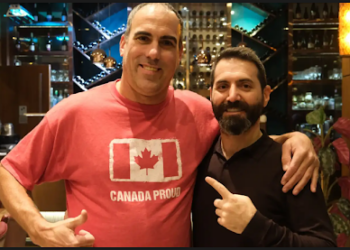If it is not absorbed correctly, the abundant sugar fructose can be a source of gastrointestinal distress and irritability. Fructose malabsorption is quite frequent among those who suffer from inflammatory bowel syndrome (IBS), although fructose malabsorption can also occur on its own without the presence of IBS.
Avoiding fresh fruits and high-fructose corn syrup, both of which are typically present in the majority of industrialized meals, can help relieve symptoms of bloating, diarrhea, and gas that are caused by an intolerance to fructose.
Fresh Fruits
If you’re fructose sensitive, you don’t have to shun all fruits; just those that contain more than 50% of their natural sugar as fructose should be eliminated. There are a number of high-fructose fruits that should be avoided. You can have honeydew melon and other low-fructose fruits in proportion if you spread them throughout the day.
Other Fruits
While some fructose malabsorbers might be able to handle tiny amounts of fresh low-fructose fruits, others could be able to saturate the fructose sensors in their digestive tracts. Those who suffer from fructose malabsorption either have a decreased number of sensors, or their synapses do not activate in the correct manner, which prevents fructose from being absorbed.
Fructose can be taken in moderation, but an excessive amount can bring on painful symptoms. Eliminating fruit juices, dried fruits, and canned fruits, even if they are manufactured with low-fructose fruits, will help minimize the fructose load and adverse effects experienced by the digestive system.
Vegetables
Patients who have trouble digesting fructose should steer clear of asparagus, artichokes, and sugar snap peas, but they can safely consume most vegetables. Fructose is found in trace amounts in every other type of vegetable other than potatoes.
If you are fructose intolerant, you may also have an adverse reaction to other sugars and carbohydrates, such as cabbage, onions, garlic, broccoli, cauliflower, fructans, polyols, and Galatians. If consuming low-fructose vegetables results in an unpleasant reaction, consulting a dietician about other possible triggers is strongly recommended.
Sweeteners: Natural and Synthetic
Sweeteners considerably influence the consumption of fructose in the typical American diet. Remove any fructose-heavy sweeteners from your diets, such as honey, high fructose corn syrup, and agave. The fructose content of low-fructose sweeteners includes maple syrup, brown sugar, granulated sugar, stevia, and sugar substitutes.
Consuming an excessive amount of these sweets at once may cause gastrointestinal problems, so you should use caution. Even though they don’t include fructose, sugar alcohols like xylitol, sorbitol, and maltose can wreak havoc on your digestive system.
FODMAPs
If you have fructose malabsorption, you can have a sensitivity to short-chain carbohydrates, which are classified as FODMAPs. A FODMAP is a carbohydrate that ferments readily and causes symptoms similar to IBS.
If this is the case, you might want to stay away from foods like onions, garlic, cabbage, wheat, rye, pistachios, lactose, and polyols found in sugar-free products, as well as cauliflower, mushrooms, blackberries, peaches, and nectarines.
To improve the health of your digestive tract and determine which diets may be problematic for you, consult a dietitian.







